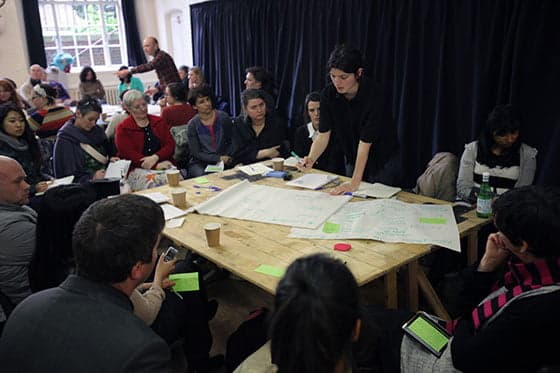Most artists earn only a small proportion of their income directly from their art. Earning a living off the sale of artworks, exhibitions and commissions is a reality for very few people.

Many earn nothing at all from being an artist. There are lots of different ways to finance your career.
Some artists get work unrelated to the art world. Artists might use creative skills as web designers, commercial photographers or project managers. Other artists have jobs as press officers, technicians, educators or invigilators in galleries.
Balancing time earning money with time spent on practice is an important part of being an artist. It can also be helpful to think about other benefits how you earn money can bring to your practice.
Listen to this presentation by artists Hunt and Darton. In it they talk about how they approached earning in a way that made sense with their work.
Exploiting your assets
Instead, many artists could benefit by exploiting other assets that they have.
By ‘asset’ we mean anything you have that you can sell. This might be
- artwork
- specialist skills
- consultancy or advice
- experiences of being an artist
- spare rooms in your property or studio
- equipment rental
- ideas or projects.
It needn’t just be objects, and it needn’t be an outright sale. Some of these, including your ideas, images and projects, you can license for a regular income without selling.
Some possible assets that an artist might have include:
| Asset | Example | Potential |
| Physical |
|
|
| Intellectual |
|
|
| Social |
|
|
| Technical |
|
|
| Reputation/ brand |
|
|
Once you’ve identified your assets, look after them.
- Keep knowledge and skills up to date
- Insure valuable equipment
- Protect intellectual property
